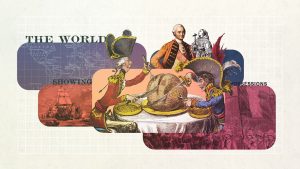On 1st August 1975 all the European nations (except Albania), together with the United States and Canada signed the Helsinki Final Act of the Conference on Security and Cooperation in Europe (CSCE). The Act promotes a comprehensive approach to security that is based not only on military and political aspects, but also economic, environmental and humanitaria dimensions.
Those who believed in peace and cooperation in Europe saw the Helsinki Final Act as a step towards ending the division of Europe in two blocs, one led by the United States, the other by the Soviet Union.
However declassified documents in the National Security Archive record Henry Kissinger telling the Cabinet on 8th August 1975: “CSCE was never an element of US foreign policy. We never pushed it.” Kissinger wanted to ensure that the Helsinki process did not weaken the US dominant position. A year earlier, while the conference was still in progress, Kissinger told President Gerald Ford “we never wanted it but we went along with the Europeans.… It is meaningless—it is just a grandstand play to the left.”
Kissinger’s State Department assured President Ford that the CSCE would not weaken the US “because the Helsinki Final Act would not be a treaty, but merely an agreement. Hence it would not be legally binding or subject to a Senate ratification debate: the agreement meant almost nothing.”
In his autobiography, ‘My life in politics’, Willy Brandt, leader of the Social Democratic Party and former Chancellor of Germany, writes: “Henry Kissinger did not like to think of Europeans speaking with one voice. He preferred to juggle with Paris, London and Bonn, playing them off one against the other, in the old style.” Kissinger used to say “he would rather have fourteen dwarfs than one giant …”
Brandt had worked hard to ease the hostility between the West and the East. He saw the Helsinki all-European conference as “good-neighbourliness” aimed at making division in Europe more tolerable. He knew very well that the division between the two blocs would not disappear by magic. He observes that people like him had great hopes for the Helsinki conference “while many others still felt unconstructively pessimistic about it…. The United States, which favoured European union in principle, found it difficult to accept joint European attitudes when they deviated from the Americans’ own stance.”
Brandt felt that his vision for a united Europe, though a distant goal, was still achieveable. “I do not think it impossible that some supra-bloc institution for Europe as a whole will come into existence.”
Like Brandt, the Soviet leader Mikhail Gorbachev believed in healing the division in Europe. He spoke of the need to work towards Europe as a ‘common home’ built and managed by the people who lived there and had grown up in it.Through the CSCE the Soviet Union had acknowledged “the North American presence in Europe as a ‘major factor in peaceful coexistence.”
Solitary Genscher
But the US administration never considered giving the CSCE more importance than NATO even after the Soviet Union had dissolved the Warsaw Pact, set up to counter NATO. Even though NATO’s raison d’etre could no longer be justified as a means to confront the Soviet threat, the US still wanted to keep NATO.
Confidential documents of 24th February 1990 made available seven years ago by the George H.W. Bush Presidential Library show that the Bush administration’s main worry about German unification was that the West Germans might make their own deal bilaterally with the Soviets and might be willing to bargain away NATO membership. President Bush set up a Camp David meeting with German Chancellor Helmut Kohl to “keep Germany on the NATO reservation.” The German chancellor was invited to Camp David without his Foreign Minister Hans Dietrich Genscher because the latter did not share the Bush-Kohl position on full German membership in NATO. He had recently angered both leaders by speaking publicly about the CSCE as the future European security mechanism.
Bush’s priority was to keep the US presence, especially the nuclear umbrella, in Europe. He told Kohl: “if U.S. nuclear forces are withdrawn from Germany, I don’t see how we can persuade any other ally on the continent to retain these weapons.”
In his conversation with Kohl, Bush views his Soviet counterpart, Mikhail Gorbachev, not as a partner but as a defeated enemy. Referring to talk in some Soviet quarters against Germany staying in NATO, he says: “To hell with that. We prevailed and they didn’t. We cannot let the Soviets clutch victory from the jaws of defeat.”
By 18th April 1990 Gorbachev is being warned by Valentin Falin, a senior expert on Germany: “The West is outplaying us, promising to respect the interests of the USSR, but in practice, step by step, separating us from ‘traditional Europe.’”
The US was dead set not only on having a united Germany in NATO but also on enlarging NATO to include the former Warsaw Pact allies. Falin comments that reasonable voices are no longer heard: “Genscher from time to time continues to discuss accelerating the movement toward European collective security with the ‘dissolving of NATO and WTO into it.’ … But very few people … hear Genscher.”
Falin warns Gorbachev: “Summing up the past six months, one has to conclude that the ‘common European home,’ which used to be a concrete task the countries of the continent were starting to implement, is now turning into a mirage.”
In a meeting on 18 May 1990 Gorbachev mentions the need to build new security structures to replace the blocs and US Secretary of State James Baker lets slip a personal reaction that reveals much about the real US position on the subject: “It’s nice to talk about pan-European security structures, the role of the CSCE. It is a wonderful dream, but just a dream. In the meantime, NATO exists.”
The US did everything in its power to ensure that CSCE would remain a small dream overshadowed by a larger NATO.
Times of Malta 01 August 2025




